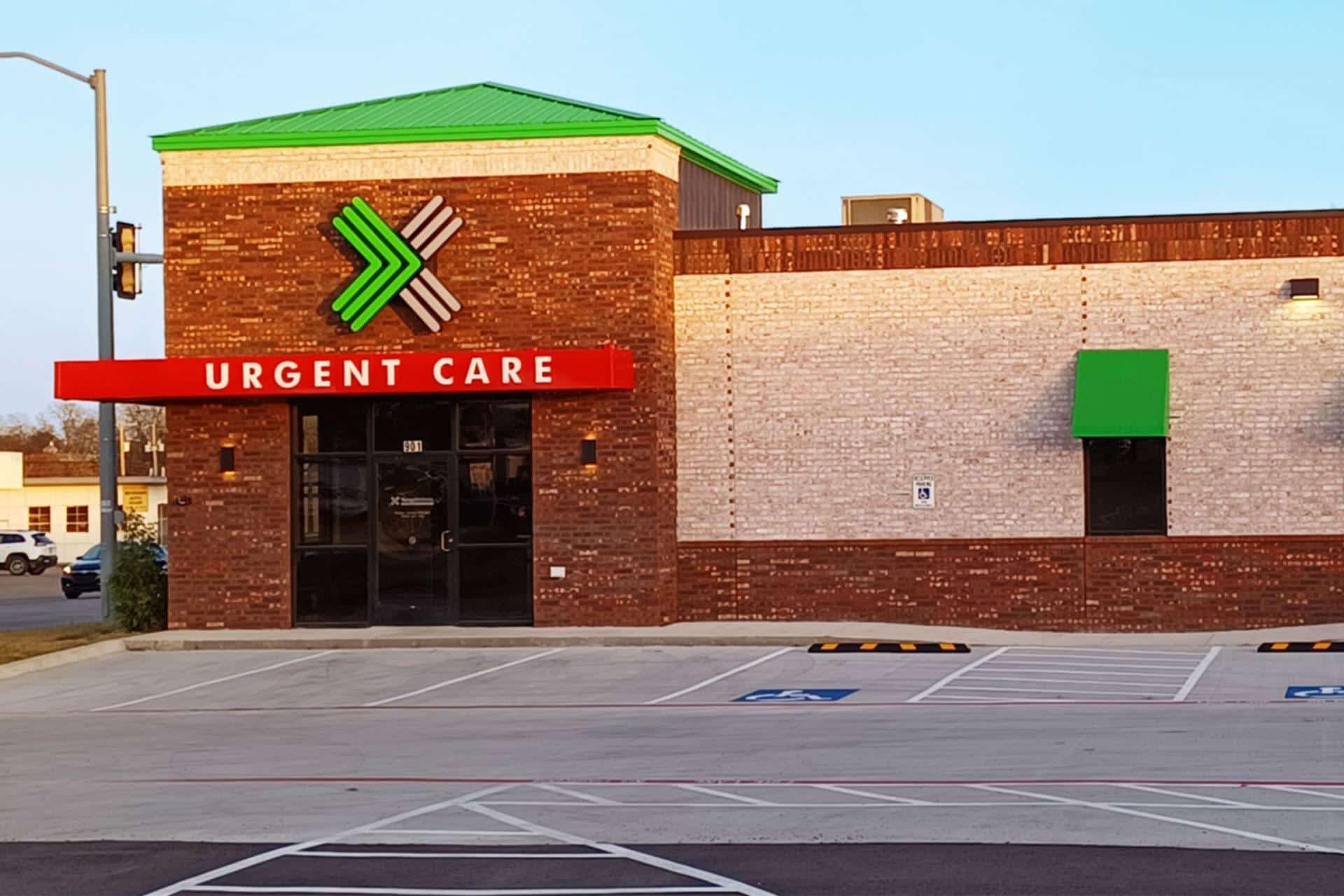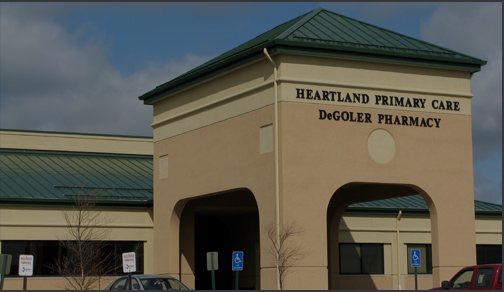Why Our Clinic is the very best Choice for High-Quality Urgent Care
Why Our Clinic is the very best Choice for High-Quality Urgent Care
Blog Article
Understanding the Role of Urgent Care in Giving Timely Therapy for Non-Life-Threatening Conditions
Immediate care facilities have emerged as a crucial part of the healthcare landscape, dealing with the instant demands of patients with non-life-threatening conditions. Recognizing the subtleties of immediate treatment might significantly influence patient outcomes and the total performance of medical care distribution.
What Is Urgent Care?
Immediate care describes a classification of clinical solutions designed to attend to non-life-threatening problems that require prompt attention. These centers act as an intermediary in between health care doctors and emergency clinic, providing a convenient choice for individuals who require punctual care without the comprehensive waiting times normally connected with emergency divisions.
Immediate treatment facilities are typically staffed by medical specialists, consisting of medical professionals, registered nurse specialists, and physician assistants, that are trained to diagnose and treat a broad array of conditions. Typical solutions provided by these facilities consist of treatment for minor injuries, health problems, and infections, in addition to diagnostic tests such as X-rays and laboratory work.
In addition, immediate treatment facilities frequently accept walk-in clients, getting rid of the requirement for visits. Overall, urgent treatment plays a crucial function in the health care system, guaranteeing people can access vital clinical services without delay and efficiently.

Lots of individuals might locate themselves unpredictable regarding when to seek care at an immediate treatment facility as opposed to a medical care physician or an emergency situation space. Immediate care is made to address non-life-threatening problems that require timely focus yet are not serious enough to warrant an emergency clinic see.
Generally, one should think about immediate care for concerns such as minor cracks, sprains, cuts requiring stitches, or infections like urinary system tract infections. Furthermore, chilly or flu signs and symptoms, breakouts, and allergies can likewise be properly managed in this setting.
It is very important to note that urgent treatment is not suitable for deadly emergency situations, such as upper body discomfort, problem breathing, or serious bleeding, which demand immediate emergency situation room intervention.
Individuals that lack accessibility to a health care medical professional or can not protect a timely visit might also benefit from urgent care services. Eventually, understanding when to make use of urgent treatment can bring about more reliable health care distribution, allowing people to obtain the ideal level of treatment based on their details health and wellness requirements.
Advantages of Urgent Care Centers
Choosing immediate treatment centers for non-life-threatening conditions provides several benefits that enhance person experience and access. One key benefit is the lowered wait times compared to traditional emergency clinic. Immediate treatment facilities usually operate on a first-come, first-served basis, enabling clients to receive timely clinical interest without the lengthy delays usually connected with healthcare facility setups.
Furthermore, urgent care facilities provide extensive hours, including weekends and evenings, suiting people with differing schedules. This versatility makes sure that people can look for treatment when it is most practical for them, better advertising timely treatment.

Additionally, these centers typically offer a thorough range of services, consisting of analysis examinations and small procedures, all under one roof covering. This consolidation of solutions not only streamlines the person experience however additionally fosters a much more cohesive method to handling non-life-threatening health issues, eventually benefiting overall client end results.
Common Conditions Dealt With
At immediate care centers, a selection of non-life-threatening conditions can visit this website be properly treated, giving clients with timely and easily accessible clinical support. These facilities are particularly adept at addressing concerns that need punctual interest however do not present a prompt danger to life or limb.
Typical conditions treated at urgent treatment centers consist of minor injuries such as cracks, stress, and strains. Furthermore, they manage illnesses like colds, flu, and infections, consisting of urinary tract infections and sinusitis. Skin conditions, ranging from rashes to insect attacks, are also often resolved. Immediate care facilities are outfitted to perform necessary diagnostic tests, such as X-rays and laboratory examinations, enabling them to supply thorough care.
Moreover, immediate care providers can administer vaccinations, assisting to avoid the spread of transmittable diseases - Urgent Care. They additionally provide services for minor procedures, such as suturing wounds or draining pipes abscesses. By supplying these varied solutions, urgent care centers play a crucial function in linking the gap between medical care and emergency services, ensuring individuals obtain prompt therapy for a vast array of problems without the demand for long haul times commonly related to emergency clinic
How Urgent Care Sustains Healthcare System
Urgent treatment facilities play a crucial role in sustaining the overall health care system by reducing the worry on emergency divisions and offering timely accessibility to healthcare for non-life-threatening problems. By taking care of situations such as small injuries, infections, and ailments, immediate treatment centers allow emergency divisions to concentrate on even more vital individuals needing prompt interest.
In addition, immediate care facilities enhance medical care ease of access, supplying extended hours and an easier option to traditional health care settings. This access is especially valuable for patients that might not have a routine doctor or that need prompt therapy outside of regular office hours. Therefore, immediate treatment centers efficiently decrease improve and wait times individual fulfillment.
In addition, immediate care facilities add to here are the findings cost financial savings for both clients and the health care system by providing lower-cost services contrasted to emergency divisions. This monetary performance is crucial in an era of rising healthcare prices, allowing people to receive essential care without sustaining excessively high expenses.
Final Thought
To conclude, immediate care facilities play an important duty in the healthcare system by delivering prompt therapy for non-life-threatening problems. By connecting the space in between medical care and emergency areas, these facilities make sure that individuals get prompt clinical attention without the extensive wait times normally connected with emergency divisions. The access and efficiency of immediate treatment facilities contribute substantially to relieving the total worry on medical care resources, boosting person results, and promoting an extra effective medical care delivery system.
Immediate treatment centers have actually arised as a crucial part of the health care landscape, attending to the immediate needs of people with you can try these out non-life-threatening conditions. Urgent treatment brows through normally sustain lower out-of-pocket expenditures compared to emergency situation department check outs, making treatment more economical for patients without jeopardizing high quality. Urgent treatment centers are geared up to carry out essential diagnostic examinations, such as X-rays and lab tests, enabling them to supply extensive care.
By supplying these diverse solutions, urgent treatment centers play an essential duty in connecting the gap between key care and emergency services, making sure clients obtain timely therapy for a vast variety of problems without the demand for long delay times commonly connected with emergency rooms.
In addition, urgent treatment facilities boost health care ease of access, using extensive hours and an extra practical option to traditional main care settings.
Report this page